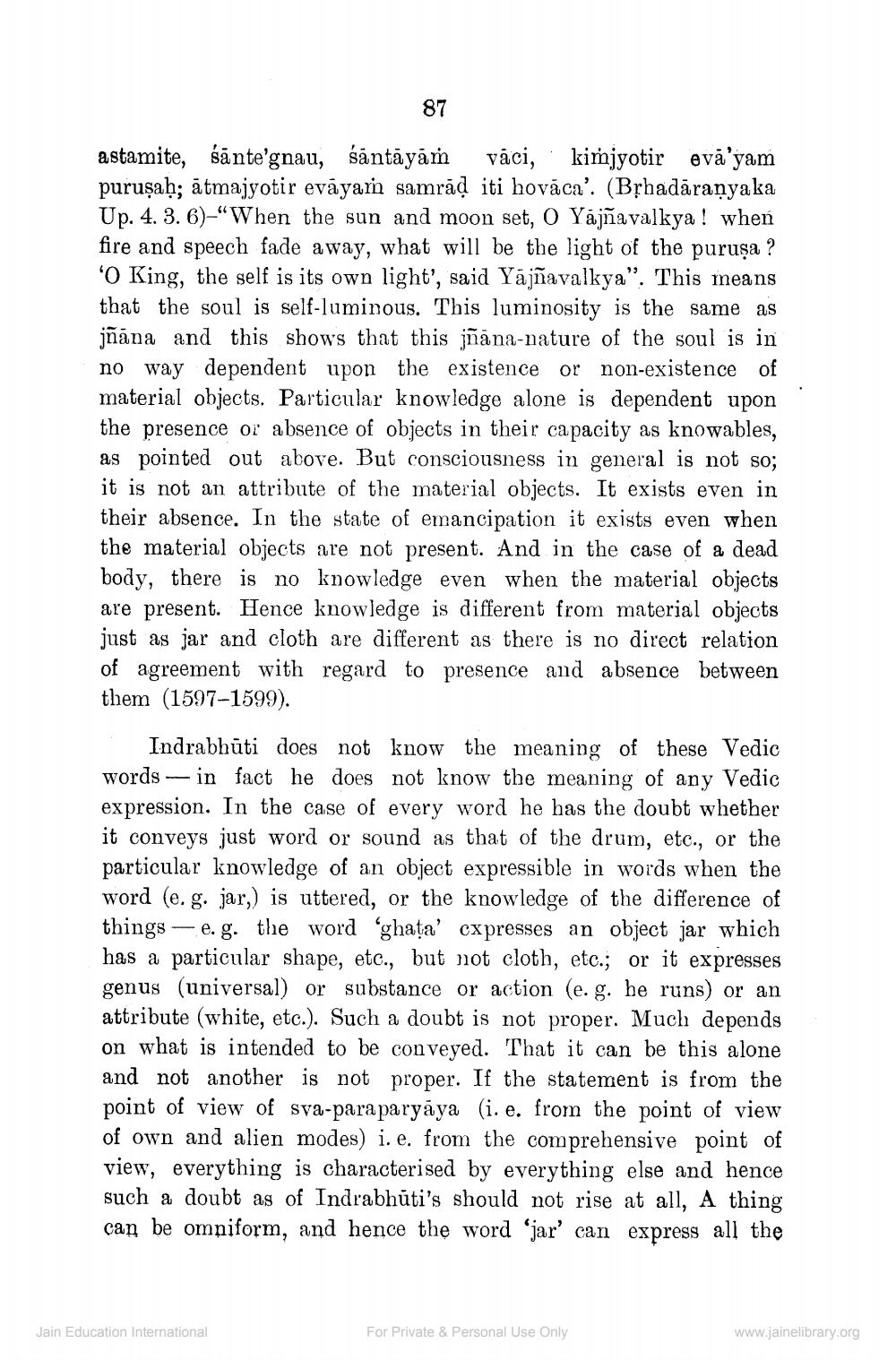________________
87
astamite, śānte'gnau, śāntāyām vāci, kimjyotir ova'yam puruṣaḥ; ātmajyotir evayarn samrād iti hovāca'. (Bșhadāraṇyaka Up. 4. 3. 6)-“When the sun and moon set, O Yajña valkya! when fire and speech fade away, what will be the light of the puruşa ? 'O King, the self is its own light', said Yājñavalkya”. This means that the soul is self-luminous. This luminosity is the same as jñāna and this shows that this jñāna-nature of the soul is in no way dependent upon the existence or non-existence of material objects. Particular knowledge alone is dependent upon the presence or absence of objects in their capacity as knowables, as pointed out above. But consciousness in general is not so; it is not an attribute of the material objects. It exists even in their absence. In the state of emancipation it exists even when the material objects are not present. And in the case of a dead body, there is no knowledge even when the material objects are present. Hence knowledge is different from material objects just as jar and cloth are different as there is no direct relation of agreement with regard to presence and absence between them (1597-1599).
Indrabhūti does not know the meaning of these Vedic words -- in fact he does not know the meaning of any Vedic expression. In the case of every word he has the doubt whether it conveys just word or sound as that of the drum, etc., or the particular knowledge of an object expressible in words when the word (e. g. jar,) is uttered, or the knowledge of the difference of things - e. g. the word 'ghata' cxpresses an object jar which has a particular shape, etc., but not cloth, etc.; or it expresses genus (universal) or substance or action (e.g. he runs) or an attribute (white, etc.). Such a doubt is not proper. Much depends on what is intended to be conveyed. That it can be this alone and not another is not proper. If the statement is from the point of view of sva-para paryaya (i. e. from the point of view of own and alien modes) i. e. from the comprehensive point of view, everything is characterised by everything else and hence such a doubt as of Indrabhūti's should not rise at all, A thing can be omniform, and hence the word “jar' can express all the
Jain Education International
For Private & Personal Use Only
www.jainelibrary.org




